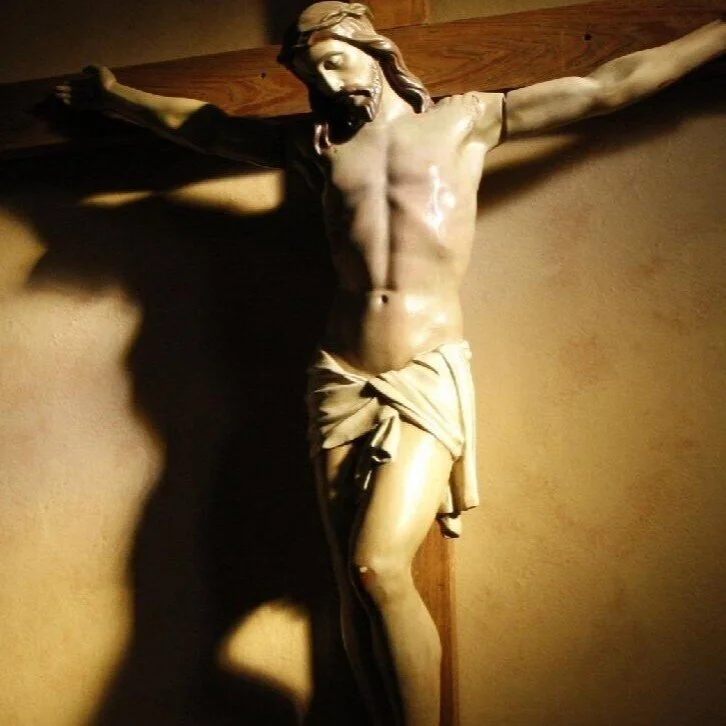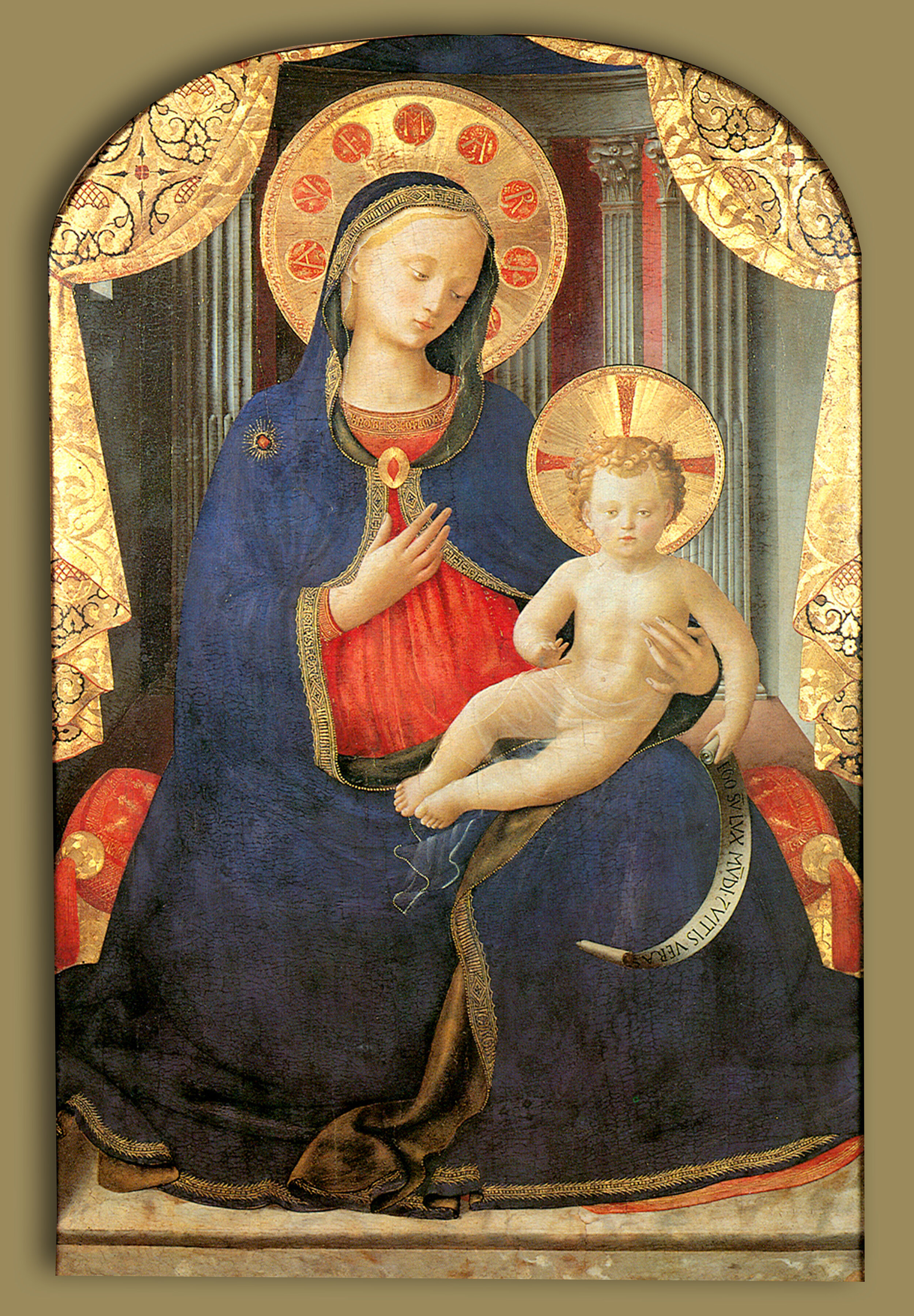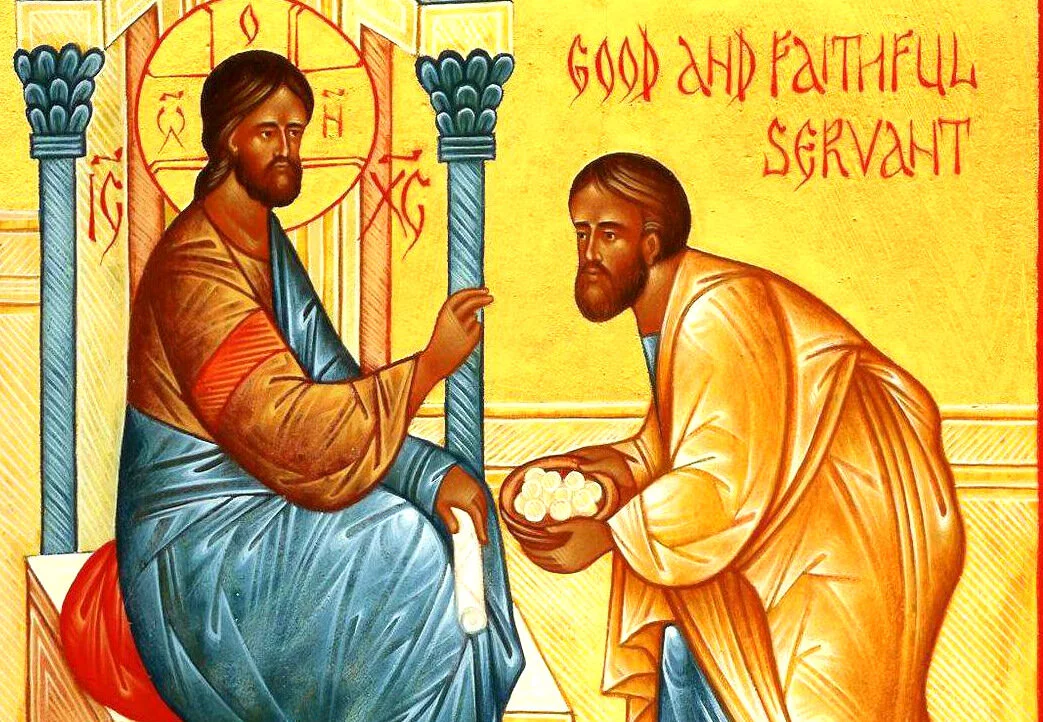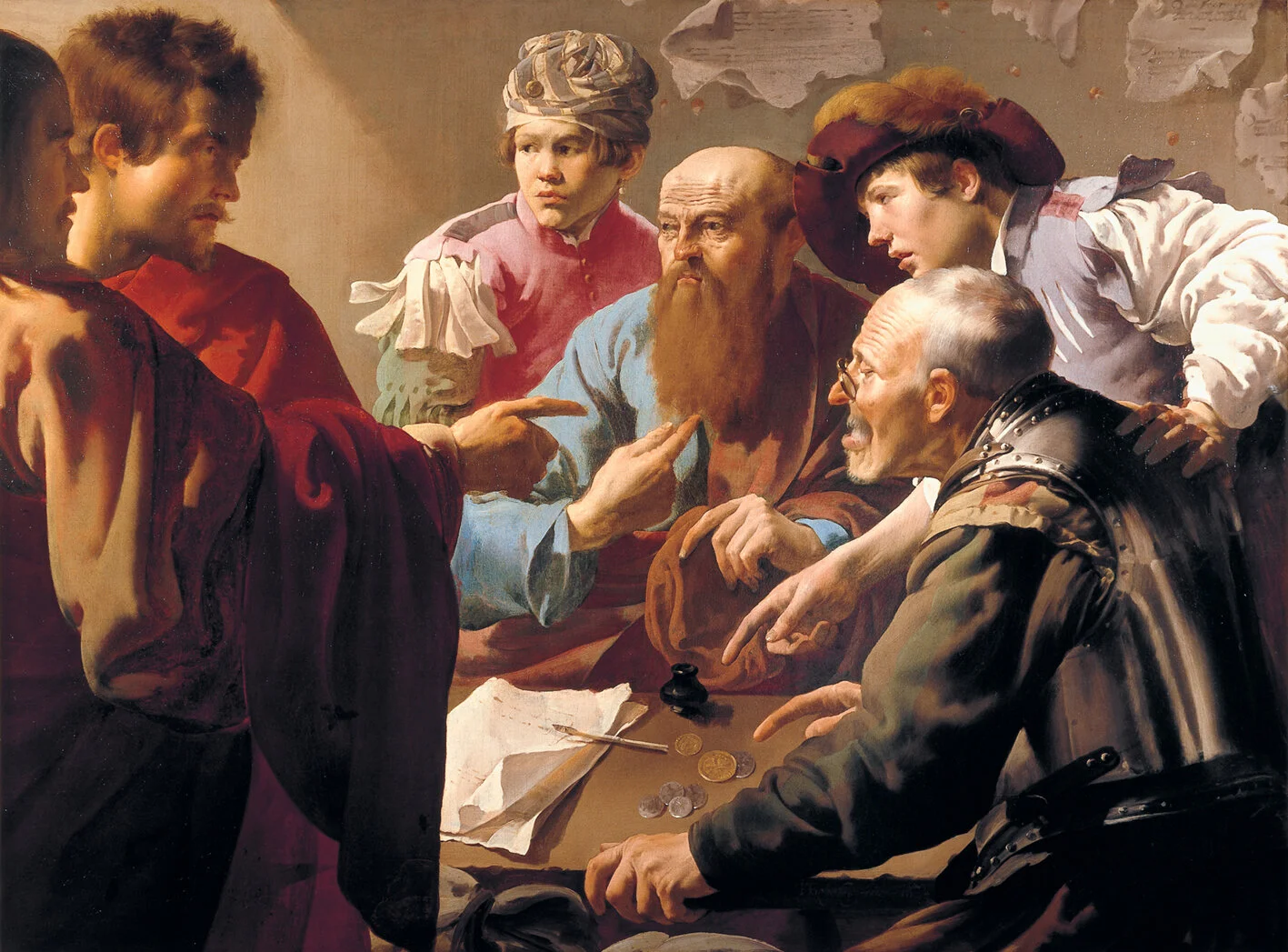Dominica XXVIII per Annum A
11 October 2020
I want to engage in a thought experiment with you. Suppose you want to build a new home. You ask around to get the best contractor you can find. You are enticed by one builder who comes with many recommendations. The builder has a great reputation in the region for using some of the best quality materials especially for roofing structures and for safe rooms. Living in Oklahoma, the reputation for great quality safe rooms and roofing draws you in. But as you meet and interview the builder you discover that he likes to build his houses on sand. It seems obvious to you that building on sand is not a good idea but every time you bring it up he keeps insisting that his roofing and safe rooms are of the highest quality in the region.
But does the house stand? Does the safe room stand especially when you need it most? These would be your natural and logical questions. Sure, the materials the builder uses might be the best around, they might somehow be better and more cost-effective than any other builder on the market. But, doesn’t the foundation matter? We would likely all say that a builder should have good materials and a sound building plan for a safe room and a roof. It is good that he has such high-quality materials and reputation for such things. But… the foundation! How can you talk about your roofing and safe room materials if the entire foundation of the home is not stable and, in fact, is a false foundation?
The critical importance of a foundation is obvious to us in the material realm, something like a house as I just described. In fact, I bet most of us would say the builder’s claims and those who celebrate his reputation are absurd. It makes no sense to sell how good your roofing work is and your safe room materials are when, being built on a poor foundation, the whole thing crumbles anyway. This same logic consistently applies and should be easily seen in the moral realm too. Foundations matter. Fundamental things matter. First things matter. You get first things, fundamental things, incorrect and what follows will not have the value it should have, or will not be reliable, because the most fundamental issues are flawed. A literal house and a figurative moral house cannot stand on a flawed foundation.
Applying this thought experiment to the moral realm I want to offer some comments this weekend on our upcoming elections and our moral duty as Catholics to be involved in the proper ordering of our society by the important task of voting and voting with a well-formed Catholic conscience.
At the outset I need to anticipate the pushback. This is not an inappropriate topic for a sermon in church. And it does not violate any perceived tax law regarding tax-exempt institutions and the separation of Church and State. My words today are about moral principles and platform issues and NOT about any one particular candidate or political party. Part of the proof for this is that these words today can be applied not only to this year’s election but to any future one. In other words, this isn’t just about this year. In fact, still more proof that this is not about any one party or candidate, a portion of what I say today is borrowed (I cut and pasted it) from words I spoke on this topic in the lead up to the 2004 and the 2008 elections – when there were entirely different candidates and when there were some notable differences in the national party platforms. In other words, the same moral principles apply no matter the election year and no matter the party and no matter the candidates.
Patriotism (I spoke on that back on the July 4th weekend) is a virtue and participating in civic life by voting is one fulfillment of patriotism. As Christians we do have a responsibility to God to seek to order this world He has made according to the Natural Law and in a way that promotes godly life. There is separation of Church and State. That principle seeks to prevent the formation of a state-sponsored official religion, and to prevent a person’s religion being the reason that person flourishes or does not flourish in the State. Separation of Church and State should not be understood however to mean that religious people or religious values are not welcome in the public square. It can be very easy for us to be cynical about political life, politicians, and voting. Especially with national politicians you might hear it said that they are all in bed with lobbyists and big money. On the flip side, others might claim a politician’s record or platform might appear great but that he or she isn’t really sincere and is just doing the right thing to get votes. These comments may in fact be true. But our voting should not be based on personality or presumed insincerity of a given candidate. I know that if I were to make voting decisions based on whose characteristics are most likable, or just least offensive, I would cast very different votes than voting based on policy. We should vote based on a candidate’s stated platform, what the record shows he or she is likely to do, and based on those issues that are most critical to the common good and which do not permit, morally speaking, differences of opinion. In other words, the well-formed Catholic conscience first looks at those issues that are most fundamental and foundational to the common good. There are some issues in our fallen world that are objective moral absolutes and there are other issues that permit diverse opinion based on prudential judgment. It’s analogous to the difference between the foundation of a home and those things that come later like a safe room and the roof.
As with any moral matter we must do good and avoid evil. The same is true when evaluating issues, party platforms, and political candidates. Some issues involve such a grave disorder of what God has established in creation, such disrespect to fundamental human dignity, that they are always and everywhere immoral and can never be legitimately supported. Such issues are called intrinsically evil (USCCB, Faithful Citizenship, 22; hereafter FC). As people of faith our non-negotiable opposition to these is demanded by the gravity of the issues themselves. A prime example of this is the intentional taking of innocent human life. Human life and the right to life is the most fundamental human good and it is the condition for all other human rights and goods. Just as it is not sound reasoning to overlook a home builder’s poor choice to build on sand while advocating his great safe rooms and roofing, likewise it is not good moral reasoning to focus on a platform’s or candidate’s great plans for dealing with poverty and education or other issues if you overlook his support of an intrinsic evil like the taking of innocent human life. The basic and foundational right to life is the condition for all other goods. Abortion is always and everywhere an intrinsic evil and while something like euthanasia is also an example of an intrinsically evil violation of human life – by the numbers – abortion kills thousands more lives daily than does euthanasia and so abortion demands more of our scrutiny when voting. To be sure, the right to life is linked to other rights and other issues in our civic life that either help or harm the flourishing of human life. However, it is insufficient moral formation to treat the right to life as just one issue among many. Frankly, a party, or a platform, or a candidate could have the best sounding ideas for other issues related to life (like education and health care) but if all that is predicated on escaping the womb it is a very weak and immoral platform indeed. “It is a mistake with grave moral consequences to treat the destruction of innocent human life merely as a matter of individual choice. A legal system that violates the basic right to life on the grounds of choice is fundamentally flawed” (FC 22). Other issues that are intrinsic evils and are non-negotiable for a well-formed Catholic conscience, though not an exhaustive list, are embryonic stem cell research, human cloning, and same-sex marriage.
Often our electoral choices present to us the challenge that one candidate supports one intrinsic evil, while the other candidate supports a different intrinsic evil. How do we choose between the two? In such cases we likely have to evaluate the magnitude of the given evil. As I said earlier, abortion kills far more people and demands more attention and is not equaled by the number of times euthanasia is committed. For example, I looked at stats from the State of Oregon, a state which permits both abortion and euthanasia. In 2016, publicly available numbers indicate that 133 deaths were registered due to euthanasia that year versus 8,942 registered due to abortion. Though both issues are intrinsically evil, when faced with having to make an electoral choice between the two it is clear which issue demands more attention since one is significantly more prevalent than the other. And what if both candidates support the same intrinsic evil? In that case, we would have to try to discern which candidate’s platform and record might at least lessen the evil or be less extreme. In most cases we will find a mixed bag due to each candidate supporting one non-negotiable issue over another. Thus, we have to evaluate whether a candidate gets it right on the fundamental right to life, and then on other non-negotiable issues try to pick the candidate whose policies would do less harm. A well-formed Catholic conscience can never cast a good moral vote hoping to advance an intrinsic evil supported by a candidate if you are voting precisely to promote that same intrinsic evil.
Still other issues in our civic life permit a variety of response and are based upon prudential judgment. They are not classified as non-negotiable issues because they are not intrinsic evils. We should also be interested in these issues, things like promotion and defense of the public order, addressing poverty, health care, education, respect for the environment, crime, civil rights, judicial appointments, capital punishment, immigration, and international peace. But, like the roof or the safe room in my analogy, these issues are less fundamental than the basic good of human life. They do admit a variety of opinions while maintaining a well-formed Catholic conscience. We do not want to ignore any of these issues. Yet, we must also recognize there is a hierarchy of issues. The foundation, the fundamental good of human life comes first. Get that wrong and no matter how good other policies sound really what you have is a house of cards.
As Catholics with a well-formed Catholic conscience we apply these moral principles to party platforms and to particular candidates so as to make the best decisions we can when we vote. We have dual citizenship. We are citizens of this country and of this world, the city of man. Yet, by faith and baptism we are made citizens of heaven. We are called to order this world in accord with the Natural Law, which anyone with reason can access and know, and we are called to order this world according to the commands of God even as we strive to be prepared to enter the heavenly wedding feast of the Father’s Son. Among other things, our well-formed conscience and our moral deeds, reflected in our voting, they vest us like the image of the Gospel parable, in the proper wedding garment required of those who are both invited and chosen.

















